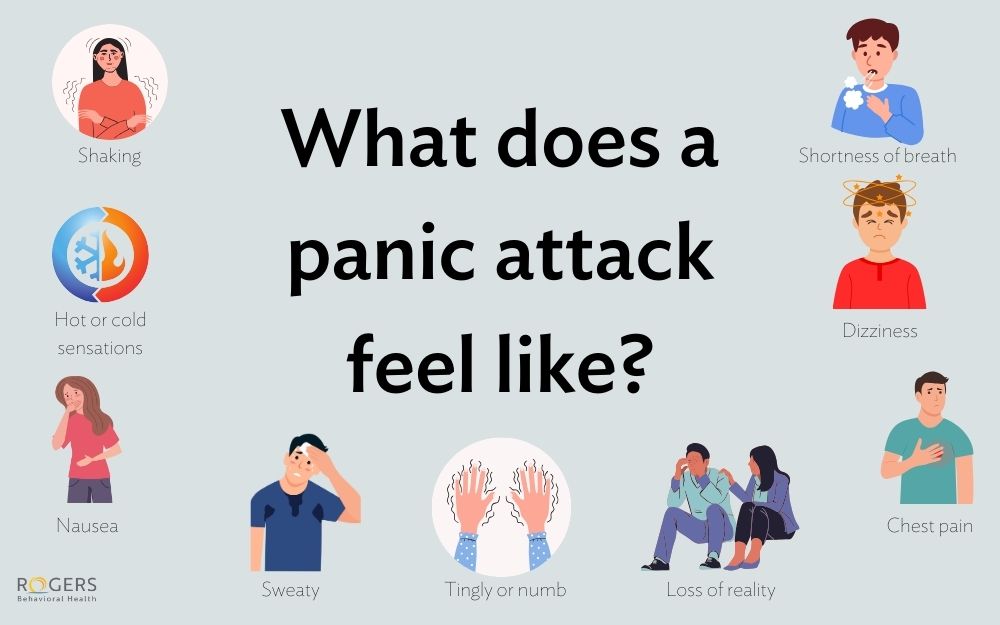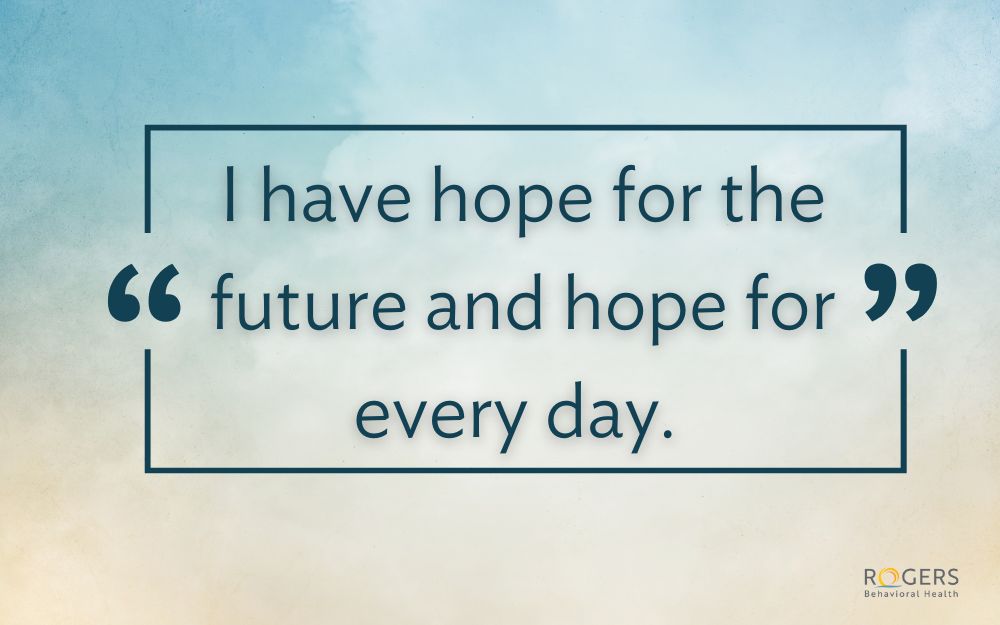Understanding IOP and PHP levels of care
Posted on 04/05/24 12:51:pm
Share this article:
By Jennifer Park, PhD, regional executive director of clinical services, psychologist
What are IOP and PHP?
Rogers offers specialized IOP, intensive outpatient programs, and PHP, partial hospitalization programs. These programs are for people who need more treatment than traditional outpatient therapy, which typically takes place once or twice a week, sometimes every other week, for an hour each session. In IOP and PHP, a person spends a lot more time in a therapeutic setting. At Rogers, IOP is three hours a day, five days a week, while PHP is six and a half hours a day, five days a week.
In IOP and PHP, people engage in interventional skills throughout the day. That could occur during a mix of group therapy, and individual sessions with a therapist, behavioral specialist, and psychiatrist or other prescribing provider. Additionally, we intentionally schedule time in our programs for our patients to work on their own to practice the skills and interventions that they've been learning.
How do you know if you need IOP or PHP?
When recommending any level of care, we consider the severity of symptoms, whether that's for anxiety, OCD, depression, or other mental health and addiction challenges. We want to know how depressed a person is feeling each day. Are they experiencing thoughts of dying or wanting to die, or have they had any recent suicide attempts? Do they experience a pervasive sense of hopelessness, lack of motivation, intense feelings of guilt? Those are major signs of significant symptoms. For OCD, we ask how much time a person is either thinking about their obsessions or engaging in compulsions, how much distress they experience due to their OCD symptoms, and how much ability or control they have to ignore their OCD thoughts and urges.
We also look at impairment. How much does a person’s mental health disorder interfere with being able to function daily? Are they able to work or go to school, and if they are, is it a tremendous strain? Does work or school feel impossible due to constantly feeling as though they’re about to fail, or is their employer telling them that they’re not doing a good job? Do they have disruptions in their ability to fall asleep and stay asleep? Are they able to take care of their basic needs, like eating and bathing regularly? Can they maintain their personal and professional relationships with coworkers, family members, and friends?
We also look at whether a person has been in outpatient therapy. Are they getting better or worse, or maybe they got a little bit better, but not much? It doesn't mean that a person needs to have tried outpatient therapy first. Sometimes people come to us when things are at their worst. They never engaged in outpatient therapy, and that’s okay. A person can come to Rogers starting therapy for the first time at a higher level of care.
What is the goal of IOP and PHP?
Our goal is to get a person to function outside of Rogers when they're at work or school. I want to emphasize that when a person completes a program at Rogers, we don’t expect that all symptoms are gone. In fact, the expectation is that there are other things that a person needs to continue to work on, but that can be done in traditional outpatient therapy. Sometimes people think that in order to complete our programs, they must be 100% better, and that’s not true at all. Our goal is to get the person back into their life. We want them to be able to do the things that they loved doing before they came to us.
How does IOP and PHP fit into treatment options at Rogers?
IOP and PHP are part of what we call our continuum of care. The most intensive level of care is inpatient, where the focus is stabilization. That’s what we mean when we say someone needs hospitalization. Inpatient is for a person who may have had a suicide attempt or an overdose or is at risk of harm to self or others. Additionally, they could need detox for substance use or medical stabilization for an eating disorder. Rogers has inpatient services in Wisconsin for children, adolescents, and adults.
The next level of care is residential, where a person lives in a therapeutic setting 24 hours a day, seven days a week for typically 30 to 90 days. Residential care is for people who need a lot of support and services to help them manage their symptoms. Rogers has residential care for children, adolescents, and adults in Wisconsin for OCD and anxiety, eating disorders, addiction, trauma, and depression and other mood disorders.
PHP is the next level of care, followed by IOP. A person can move through levels of care based on their symptoms.
What is a misconception about IOP and PHP?
One of the biggest misconceptions about IOP and PHP is that patients receive one-on-one care the entire time they are with us. Our programs are purposefully designed so that we don't do that. Remember, our goal is to have our patients get back to living their lives. If they need a person with them every moment for six and a half hours a day or three hours a day, we are not setting them up for success to be able to live, work, and go to school independently when they leave us. We’ve built both therapist and behavior specialist-assisted interventions into our programs where patients meet with clinicians on a regular basis. We’ve also built in what we call individual treatment assignment time to allow opportunities to practice the skills and tools that they've been learning on their own. A member of the treatment team checks in regularly during that time to see how a patient is doing, answer questions, monitor progress, and provide new assignments that align with the treatment plan and identified goals. By practicing what they’ve learned in treatment, patients are empowered to make improvement in their lives and actively work toward recovery. We believe our patients can do hard things, and we’re here to support them.
Get help at Rogers Behavioral Health
Rogers’ compassionate experts in Wisconsin and across the country are ready to help if you or a loved one is struggling with mental health or addiction. Call 800-767-4411 for a free, confidential screening.



